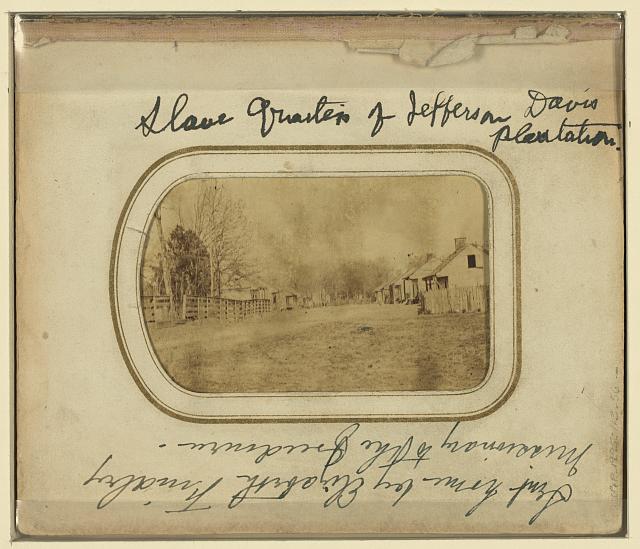Davis Bend
The story of Davis Bend is not what you’d expect. Confederate President Jefferson Davis made his home at Brierfield. His older brother, Joseph, had his home nearby at Hurricane. Both of these estates were located on a thumb-like pennisula of land thrusting westward, about 20 miles south of Vicksburg on the Mississippi River. Across the river, on the Louisiana side, lay the community of New Carthage to the north, and Somerset plantation due west, the home of planter and Confederate congressman, John Perkins.
This was plantation country. Like the images conjured up by the term, “Old South.” Wealthy planters, who owned numerous slaves, and raised cotton. Lots of it. But there’s where the stereotype ends.
The way Joseph Davis ran his plantation (and his brother’s, when he was often absent) was most unusual. His slaves were literate, and had their own school. They had their own justice system – a true jury of their peers – and other slaves sat in judgement. Overseers were prohibited from using the lash, and the neighbors derisively referred to the slaves as “Jo Davis’s free negroes.”
Benjamin Montgomery was probably one of the most well-respected and influential slaves on the plantation. He operated a general store at the landing, kept his own books and earnings, and dealt with businesses in New Orleans, Natchez, and Vicksburg. During the war, Union general U.S. Grant was so impressed by what he saw of the operations on Davis Bend, he forecast that the area would become a “Negro paradise.”
Jo Davis routinely gave Montgomery business loans, and continued to do so for years after the war when the army worm and flooding nearly ruined the entire community. In 1866, Davis sold the land to Montgomery, but twenty years later, a devastating flood created a new channel for the river, cutting through the area still linking the pennisula to the mainland, and Davis Bend became an island. It proved the death knell of the freedman’s community at Davis Bend, for the river now bypassed Ben Montgomery’s store (operated by his son, Isaiah, after Ben’s death in 1885), made it difficult to get any goods to or from the markets, and created difficulties with neighboring (white) landowners who would not cooperate in building up a levee. In 1887, Isaiah led the colony upriver and founded the town of Mound Bayou.
You can read much more about Davis Bend and its fascinating history in the book, The Pursuit of a Dream by Janet Sharp Hermann.


Ben Montgomery was man born into slavery but was destined to do great things, what a life he lived.
Yes! His story and that of his family and the community at Davis Bend is so fascinating.
I have just discovered that this great man is my Greatx4 Grand Father on my Maternal Side. My Great grand father Name is Thomas T Montgomery.
Derrick – What a discovery! The Montgomerys and the story of both Davis Bend and Mound Bayou is so interesting, so rich, so inspiring – and so little-known.
As a native of Mound Bayou, it was a remarkable place for Blacks. What was amazing at the time in which I grew up in Mound Bayou, Mississippi, you were isolated somewhat from the racist behavior which was common to the deep South. Your state of mind was that I can enjoy the freedoms enjoyed by all Americans. However, as you read the news papers you became aware of the fact that America was not a nation which provided equal opportunities for all Americans. However, regardless of the state of America, you knew that you could be successful and become a very successful and productive person.
It was this positive, caring and enriched environment which created the successful, productive person I became. No Place like the Bayou!
Andrew – Thank you so much for stopping by and leaving this comment. I always appreciate hearing from people who have connections to the places I write about and that figure in to the story of Milliken’s Bend and the region. I appreciate hearing this personal perspective about this place.